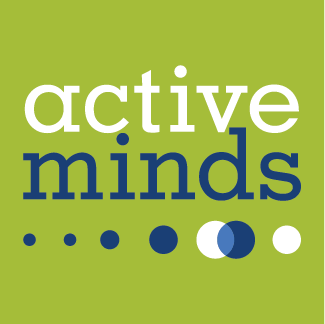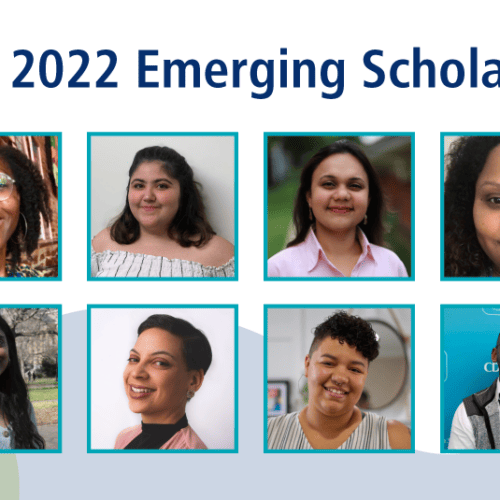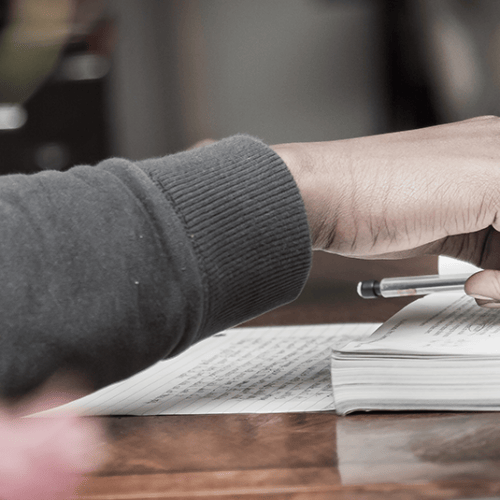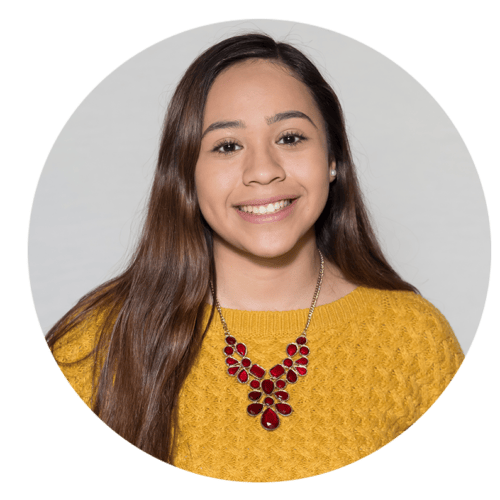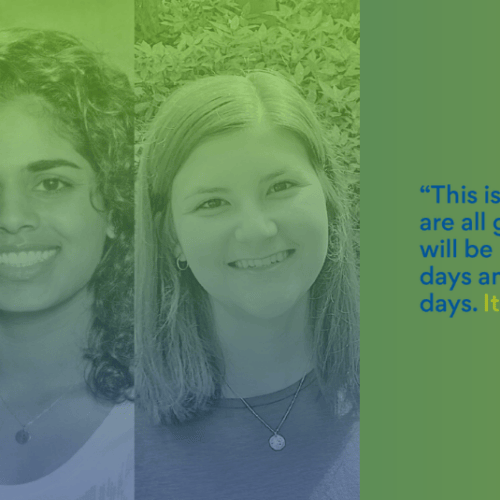We are proud to announce the Active Minds 2022 Emerging Scholars Fellowship cohort! The Emerging Scholars Fellowship, generously supported by the Scattergood Foundation for Behavioral Health and Avi and Sandra Nash, provides an opportunity for students to be mentored by experts in the mental health field while they work to complete independent, funded research projects. These projects focus on a variety of topics, including campus mental health resources, health equity and anti-racism, anti-fat bias, and more. We are also proud to have doubled the number of scholars from last year and are excited to see how their projects shed light on crucial mental health-related topics.
- Jasmine Barnes
Jasmine Barnes is completing her Master’s of Public Health at La Salle University. She has experience serving individuals with persistent mental illnesses and individuals with substance use disorder. Her project for the Emerging Scholars Fellowship will explore the impact of the adultification bias experienced during childhood on the mental health outcomes of African American women. - Brandon Bond
Brandon Bond is a second-year master’s student at the University of Michigan. He is working towards a Master’s of Public Health in Health Behavior & Health Education, and a Master’s of Social Work in Global Social Work Practice. His project will explore the sense of belongingness on campus, self-esteem, and self-perception of well-being for students of African descent by developing a pilot pop-up barbershop, a staple Black community on campus. - Saharra Dixon
Saharra Dixon is a first-year doctoral student in the community health education program at the University of Massachusetts Amherst. She is interested in how the arts can serve as a powerful tool to promote healing and facilitate behavioral and social change. Her project will use digital storytelling to explore the experiences of Black women with body-focused repetitive behaviors like hair-pulling and skin picking, to investigate how the intersection of racism, sexism, and sociocultural expectations may shape their experiences. - Gabrielle S. Evans
Gabrielle S. Evans is a doctoral student in her third year of the University of Texas Health Science Center-Houston’s health promotion and behavioral sciences program. She is passionate about examining the relationship between culture and sexual health. Her project will explore if historical and present traumatic events have an impact on the sexual health of Native American adolescents and young adult women and how trauma-informed interventions can be applied through a cultural lens. - Praise Iyieware
Praise Iyieware is a fourth-year clinical psychology doctoral student at the University of Vermont. She hopes to one day work as a clinical psychologist who supports the mental health of Black queer folks through her research and clinical work. Her project will focus on the intersection of trauma, pleasure, and mental health outcomes among marginalized populations. - Harshi Matada
Harshi Matada is currently an undergraduate student at the University of North Carolina at Chapel Hill pursuing a degree in neuroscience and biology. Harshi is a mental health advocate who hopes to restructure the views of mental health on campuses by providing equitable resources and services in her community. Her research will focus on reviewing mental health resources on her campus pre- and post-COVID, particularly concerning how these resources benefit BIPOC students. - Janita Aidonia Matoke
Janita Aidonia Matoke is pursuing her Master’s of Public Health with a concentration in public policy at Thomas Jefferson University in Philadelphia, Pennsylvania. Janita will be working with a select cohort of youth to incite dialogue and provide culturally representative care in hopes to show the profound effect of mental health conversations, representation, as well as accessible and quality care. She plans to one day work as a physician and is passionate about writing. - Misha Mehta
Misha Mehta is a doctoral candidate in Thomas Jefferson University’s population health science program. She seeks to support BIPOC military service members and veterans with post-traumatic stress injury. As part of her doctoral studies, she will explore evidence-based strategies to reduce barriers to mental and behavioral health services for BIPOC communities. - Taina Quiles
Taina Quiles is a doctoral student in the community psychology program at the University of Virginia. For her project, she will be examining how subdomains of hope (such as personal agency, community care, and spirituality) relate to different types of activism. In general, Taina is interested in how critical consciousness, ethnic-racial identity, and community cultural wealth help Black and Latinx youth navigate inequities, including in regards to mental health. - Parna Shakouri
Parna Shakouri is a student at Colgate University where she studies anthropology and global public and environmental health. Using the universal language of storytelling, she plans to investigate and portray the effects of patient/provider relations on the mental health, lived experiences, and perceptions of physical and emotional pain in Black, Indigenous, and other young women of color. Parna is passionate about health equity and the intersection of sociomedical and behavioral sciences with BIPOC and LGBTQ+ communities. - Karyn Stovall
Karyn Stovall is currently pursuing a Master’s of Social Work from Chicago State University, along with working as the community research and engagement coordinator for the Chicago Health Disparities Center at the Illinois Institute of Technology. She has also worked at the National Alliance on Mental Illness (NAMI) Metro Suburban as a community health worker and in the U.S. Department of State managing academic programs, overseeing budgetary and grant needs, and conducting public affairs activities. - Evan-Taylor Willis
Evan-Taylor Willis is currently completing their Master’s of Social Work and Human Sexuality Education at Widener University. Their project aims to explore the impact that anti-fat bias has on the mental health of college-aged women, and how mental health professionals can perpetuate or dismantle anti-fat biases in their practice. In general, they are an advocate for body diversity and LGBTQ+ people of color and are passionate about removing barriers that prevent these populations from having access to mental health services.
To learn more about the Active Minds Emerging Scholars Fellowship, please visit our website.


